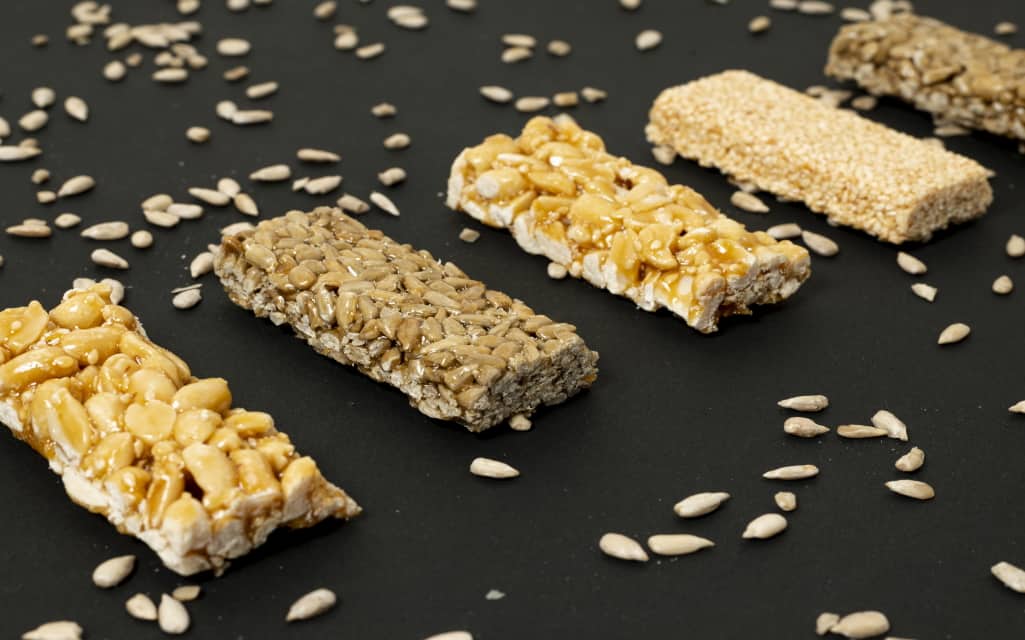When most people hear about meal replacements, they usually think of shakes. But what if you’re after something that is both nutritious and chewy? That’s where meal replacement bars come in. And our guide will help you find the ones that are in tune with your unique goals and needs.
Key Questions to Ask Before Buying Meal Replacement Bars
There’s no shortage of meal replacement bars out there. But how do you know which ones will work?
To spot the meal replacement bars that fit your situation, ask yourself:
- Do you care whether your food is organic? If you do, you will have a much less varied assortment of meal replacement bars to choose from. On the flip side, though non-organic meal replacement bars abound, they may come with toxins that undermine health.
- Are you a vegan? This will help to determine what types of protein in meal replacement bars you can be okay with. While the meal replacement bars with animal-sourced protein are plentiful, plant-based alternatives may be few and far between.
- Do you suffer from food allergies? Traces of eggs, peanuts, soy, milk, and gluten are present in most meal replacement bars on the market. For some people, trace amounts can be more than enough to trigger a severe case of food allergy.
- What are your goals? Although meal replacement bars are versatile, some of them may do more for your goals than the others. For instance, meal replacement bars for weight loss and for weight gain will come with different macronutrient ratios.
At this point, you must have a grasp of what meal replacement bars suit you better. How can you tell which ones are decent?
Meal Replacement Bars: Tips on What to Look For
Regardless of your answers earlier, high-quality meal replacement bars share certain similarities.
Namely, they have:
- Generous amount of protein To ensure the desired energy boost, meal replacement bars must deliver no less than 15 grams of protein. Meal replacement bars with less than this amount won’t be able to effectively balance your blood sugar levels.
- Protein isolates Low-grade meal replacement bars use protein concentrates and hydrolysates that contain impurities, such as lactose and heavy metals. Higher-grade meal replacement bars use protein isolates that have a lower degree of contamination with the unwelcome compounds.
- Carbs from low-glycemic foods Decent meal replacement bars take carbs from whole foods that have a low glycemic index, like whole grains. On the contrary, meal replacement bars of bad quality are usually full of cheap high-glycemic carbs, like maltodextrin.
- Healthy fats Top-of-the-range meal replacement bars derive fats from such high-quality sources as nut butters, coconut oil, and grass-fed butter. Conversely, low-quality meal replacement bars make use of fats and oils from inferior sources, like soybean and palm.
- Natural flavors and sweeteners Second-rate meal replacement bars tweak their flavor and sweetness by using toxic artificial compounds like sucralose and sorbitol. Meal replacement bars of better quality are sweet and flavorful thanks to natural ingredients like stevia and honey.
- Dietary fiber Meal replacement bars of poor quality derive their fiber from low-quality sources like polydextrose and soluble corn fiber. To aid in digestion, decent meal replacement bars include fiber from high-quality sources like fruits and whole grains.
As you can tell, not all meal replacement bars are equally beneficial. Which ones are you better off not buying?
Meal Replacement Bars: Tips on What to Watch For
It’s wise to steer clear from the meal replacement bars that contain:
- Hydrogenated fats and oils Indigestible by the body, trans fats clog vessels and tissues worse than bad cholesterol.
- Artificial flavors and sweeteners These substances are neurotoxic and undermine the immune system by suppressing beneficial gut bacteria. Synthetic dyes and preservatives are harmful in a similar way.
- Soy and its derivatives This phytoestrogen disrupts the function of thyroid and alters the healthy balance of hormones.
- High-glycemic carbs Ingredients like high-fructose corn syrup and maltodextrin wreak havoc on blood sugar and insulin levels. Furthermore, they commonly contain GMOs.
This list is by no means exhaustive. But it includes the most usual culprits.
Read More: Best Food Choices To Keep Your Heart Healthier Than Ever
Brands of Meal Replacement Bars Worth Checking Out
The brands below meet many of the standards we’ve mentioned:
- PROBAR.
- RxBar.
- Quest Nutrition.
- MRE.
- Raw Rev.
- Orgain.
- Perfect Keto.
We hope our guide will help you buy the best meal replacement bars for your goals and needs.



